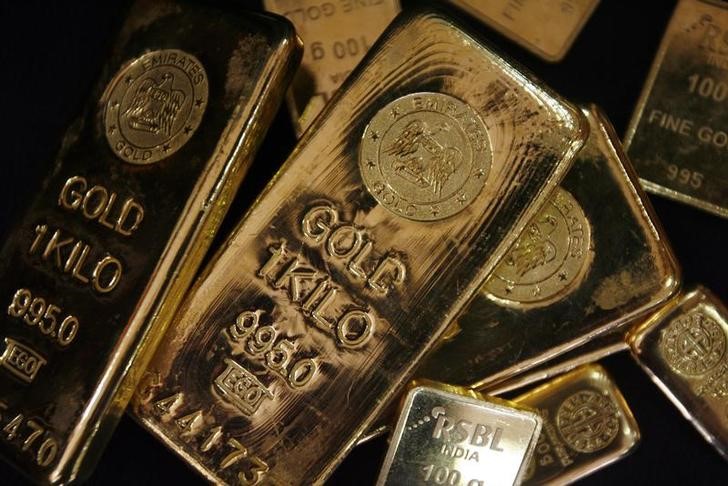Investing.com-- Gold prices fell slightly on Thursday as a recent rally in the yellow metal appeared to have paused, as markets awaited more cues on U.S. monetary policy from a key inflation reading due later in the day.
But the prices of the yellow metal remained close to a seven-month peak hit earlier this week, as expectations of a less hawkish Federal Reserve, a weaker dollar and some increased safe haven demand spurred strong gains in November.
Spot gold fell 0.1% to $2,042.10 an ounce, while gold futures expiring in December fell 0.2% to $2,044.10 an ounce by 00:41 ET (05:41 GMT). Both instruments were up between 2.5% and 3.1%, their second straight month of strong gains.
PCE inflation, more Fed cues in focus
The yellow metal saw stellar gains this week as a string of Fed officials said that recent declines in inflation suggested that the central bank will likely not raise interest rates any further, and that a further easing in inflation may also spur the bank into cutting rates in early-2024.
The trend pointed to easing pressure on gold from high interest rates- a trade that had battered the yellow metal over the past 18 months.
But markets were now awaiting more cues on U.S. inflation from PCE price index data for October, due later in the day. The reading is the preferred inflation gauge of the Fed, and is likely to factor into the bank’s stance on interest rates in the coming months.
Also in focus was an upcoming speech by Fed Chair Jerome Powell on Friday- his final word before the two-week blackout period ahead of December’s Fed meeting. The central bank is widely expected to keep rates on hold in its last meeting for the year.
Easing U.S. interest rates- particularly the prospect of early rate cuts in 2024- bode well for gold, given that high interest rates push up the opportunity cost of buying bullion.
Spot prices were now around $30 away from a record high hit earlier this year.
Copper rises past weak China data as markets tighten
Among industrial metals, copper prices rose slightly on Thursday, shrugging off weaker-than-expected economic readings from top copper importer China.
Copper futures expiring in March rose 0.2% to $3.8418 a pound, and were set for a 5.3% jump in November, benefiting greatly from weakness in the dollar.
Purchasing managers index data showed that Chinese manufacturing activity shrank more than expected in November, extending a decline as export demand dwindled. The downturn pointed to a potential cooling in copper demand.
But this notion was offset by signs of tighter copper markets, following major mine closures in Peru and Panama, which are expected to limit copper supplies in the coming months. Increased demand for electric vehicles and a green energy push are also expected to offset declining Chinese demand.
